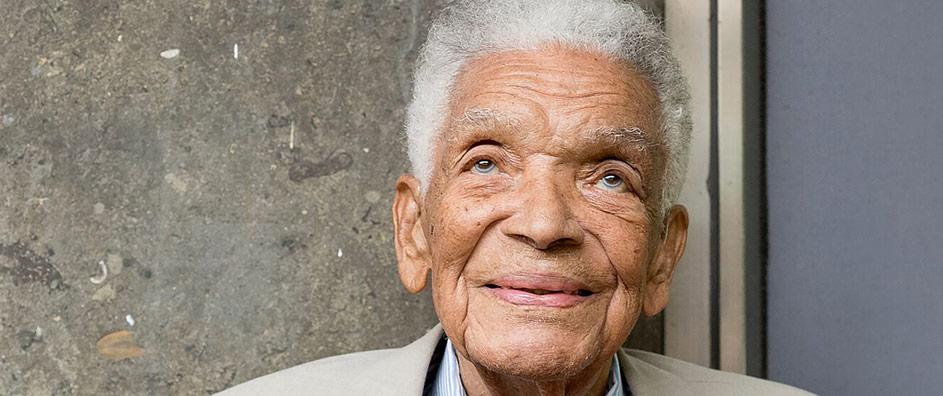At the intersection of art and spirituality lies the profound exploration of life through the lens of faith and change. This is epitomized by the experiences of a century-old pioneering actor, whose reflections inspire a deeper understanding of the Bahá’í teachings. As we delve into this remarkable individual’s journey, consider the playful question: What if our life choices were ultimately a reflection of our values, shaped by both external influences and internal convictions?
The Bahá’í Faith emphasizes the unity of humanity and the importance of collective progress. This principle resonates resoundingly within the experiences of individuals who have transcended the boundaries of their circumstances. The pioneering actor, having dedicated a lifetime to the performing arts, bears witness to the vicissitudes of life while upholding the tenets of faith. His journey illustrates how a steadfast commitment to core spiritual principles can illuminate one’s path amidst a world characterized by tumult and transformation.
One of the foundational elements of Bahá’í teachings is the concept of personal transformation. The actor’s reflections serve as a testament to the transformative power of faith. Throughout his life, he has encountered myriad challenges that necessitated a reevaluation of priorities and beliefs. In the Bahá’í context, transformation is not merely about personal upliftment; it is about being a catalyst for societal change. As he navigated the complexities of his profession, the actor realized that his art could serve as a conduit for fostering understanding and empathy among disparate communities.
The narrative of this actor also encapsulates the Bahá’í principle of service to humanity. His career has not been solely about personal acclaim; rather, it has been grounded in a desire to contribute positively to society. By embracing the notion that art reflects life, he has sought to highlight the dignity of the human spirit, advocating for equity and justice through his roles. This commitment aligns seamlessly with the Bahá’í call to action, reminding us that our talents and abilities can be harnessed for the betterment of society.
However, what happens when the ideals of faith confront the harsh realities of change? The actor poignantly reflects on how he has had to grapple with the ephemeral nature of fame and the frailty of human experience. He points out that every success can be overshadowed by moments of doubt and disillusionment. In moments of vulnerability, he chose to anchor himself in his faith, allowing it to guide his decision-making. Such a struggle poses a challenge for many: How does one maintain integrity and authenticity in an ever-shifting landscape?
This inquiry leads us to another vital Bahá’í principle: the importance of community. The actor emphasizes the role that mindful companionship plays in navigating life’s trials. The interconnectedness of human beings, as espoused in Bahá’í teachings, highlights the idea that collective strength can bolster individual resilience. Reflecting on his own experiences, the actor reveals that he has often sought solace and guidance from fellow artists and spiritual mentors. Communal bonds foster an environment where individuals can collectively strive towards the greater good, providing a buffer against adversity.
Moreover, faith offers a prism through which to view change—akin to a kaleidoscope, constantly rearranging itself while maintaining its essence. For the actor, embracing change has been integral to his artistic expression. Each new role has presented an opportunity to explore diverse perspectives and delve into the complexities of the human condition. This adaptability aligns with the Bahá’í tenet that encourages exploration and inquiry as means to enrich one’s understanding of the world. Artistic endeavors should thus be regarded as a dynamic engagement with life’s inherent uncertainties.
As he reflects on his 100-year journey, the actor also emphasizes the importance of maintaining a hopeful outlook amidst adversity. The Bahá’í Faith teaches that hope is fundamental to human existence, serving as a balm in times of turmoil. Despite the challenges he has faced, he remains optimistic about the future, believing in the potential of humanity to foster meaningful connections through understanding and love. His unwavering faith extends beyond personal hope, encompassing a belief in collective betterment—a vision that resonates deeply within the Bahá’í community.
The question persists: In light of change, how do we cultivate a resilient spirit? The actor’s life offers invaluable lessons. Embracing vulnerability, seeking communal support, and nurturing hope are essential components of resilience. By adopting these practices, individuals can navigate the tumultuous waves of life, emerging stronger and more united. The allure of the arts, intertwined with faith, encourages individuals to explore the nuances of their existence, recognizing that change, while daunting, is also a conduit for growth.
In summary, the reflections of a 100-year-old pioneering actor illuminate the intricate relationship between life, faith, and change. Through his narrative, we glean insights that resonate with the core principles of the Bahá’í Faith: personal transformation, service to humanity, communal bonds, and hope. These teachings are not mere ideals; they beckon us to engage actively with the world around us, challenging us to reflect on our values, reimagine our solutions, and reshape our narratives. As we embrace our stories, let us aspire to weave a tapestry that honors the intricacies of our collective journey, fashioned by faith and underscored by resilience.
